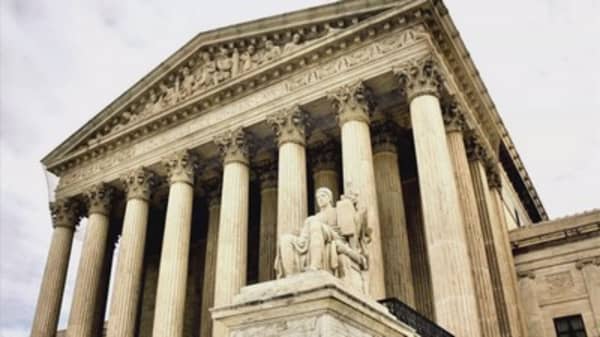Don't let the qualified headlines or lead paragraphs in most of the news media fool you. Monday's decision by the U.S. Supreme Court allowing just about all of President Donald Trump's travel and immigration ban to go into effect is a very significant victory for his administration.
Coming at the same time as the Russian collusion hysteria starting to wilt under Democrat self-doubt, and the crushing special election loss for Democrat Jon Ossoff in Georgia, maybe everyone really is getting tired of all of Trump's winning.
But while many Americans are still very angered by the ban, the whole country should celebrate the important victory this is for our constitutional separation of powers.
That's because the lower court decisions against the administration were transparently partisan and flimsy. One of the clearest forms of constitutional law is that the President of the United States and the Executive Branch has control of the immigration process and the borders of the country. That's how even President Obama imposed severe immigration restrictions of his own in 2011 when it stopped processing Iraqi refugee requests for six months.
"The exclusion of aliens is a fundamental act of sovereignty … inherent in the executive power," the Supreme Court said in 1950.
One of those lower court decisions, the Ninth Circuit, insisted that non-citizens holding a visa had due process, such as a hearing or notice, prior to the government restricting their travel. In other words, the lower courts were giving visa holders the due process rights only American citizens have enjoyed for more than 220 years of U.S. law. That was a decidedly problematic decision that violated all legal precedent.





